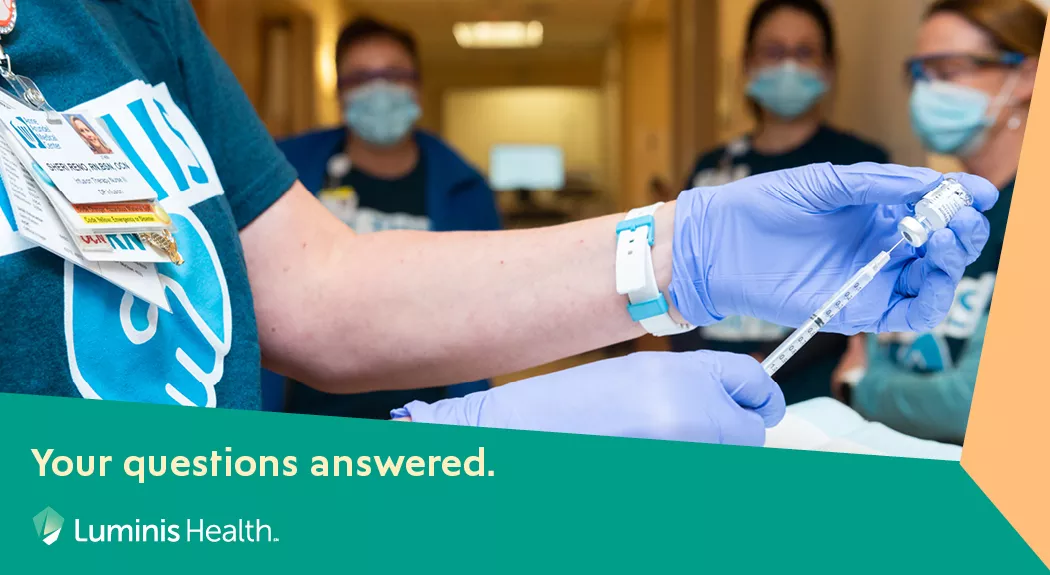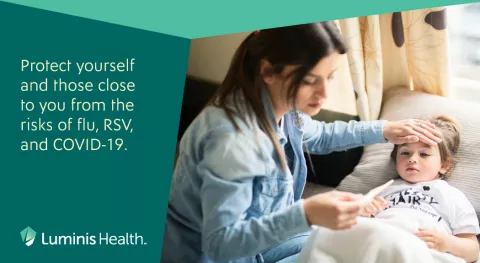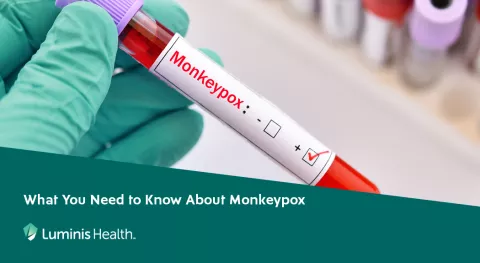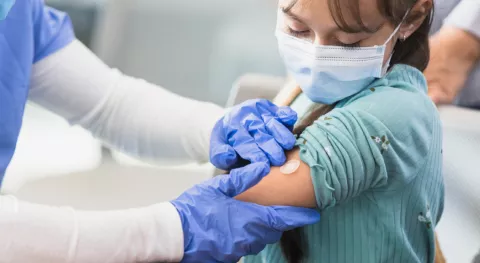Thanks to vaccines, there’s been a renewed sense of hope that we’ll move past COVID-19. Businesses have reopened. And many of us are once again spending time with family and friends. In short, life seems to be returning to normal.
But if you’ve watched the news lately, you know we’re not out of the woods just yet. A mutated form of the virus, known as the delta variant, is circulating worldwide. And it’s important we all know a little something about it.
A Variant of Concern
It’s not uncommon for viruses to mutate, or change, over time. In fact, officials have already identified several COVID-19 mutations or variants. Experts watch these variants carefully because the variants can behave differently than the original virus strain from 2019.
Although there’s still a lot to learn about delta, there are several reasons the Centers for Disease Control and Prevention (CDC) named it a “variant of concern,” including:
- The delta variant has been responsible for “breakthrough” infections in vaccinated people, primarily those with severe chronic diseases and weakened immune systems. Vaccination continues to prevent severe illness and hospitalization with the delta variant.
- It spreads quickly. Delta was first identified in India in late 2020 and wasn’t detected in the U.S. until March 2021. But by July 2021 it was responsible for more than 80% of U.S. COVID-19 cases. It’s also much more contagious than earlier strains of the virus.
- Young people are at risk. Younger people who contracted the original coronavirus generally fared well. However, without the vaccine, cases are now occurring primarily among young adults.
Get Vaccinated, Get Protected
We know the vaccines we have today are effective against COVID-19 and that they appear to work against the delta variant, as well. That’s good news if you’re fully vaccinated, but it could mean trouble if you aren’t. More than 95% of the people who end up in the hospital with COVID-19 now are unvaccinated. And among those who die from the virus, the percentage who didn’t get a vaccine is even higher. As the director of the CDC recently noted, “This is becoming the pandemic of the unvaccinated.”
Currently, everyone 12 years and older is eligible to get a COVID-19 vaccine in the U.S. But as of late July, less than 60% of that population are considered fully protected. This means there are still many Americans at risk from the delta variant.
To be fully protected, you must:
- Get both doses of the Pfizer or Moderna vaccine. (The Johnson & Johnson vaccine requires only one dose, but some evidence suggests it might be less protective against the delta variant.)
- Wait two weeks after your last dose for your vaccines to take full effect.
If you’re not vaccinated — or not yet fully protected — it’s best to:
- Avoid large crowds
- Clean and disinfect commonly touched surfaces
- Cover coughs and sneezes
- Stay at least six feet away from others
- Wash your hands often
- Wear a mask in indoor public places
Concerned About The Vaccines? Talk to Your Doctor
The more people who get vaccinated, the less of a threat the delta variant poses.
With higher vaccination rates, it also becomes less likely that other, potentially even more dangerous, variants will emerge.
There are a lot of rumors going around about the vaccines. Don’t let them keep you from protecting yourself and the people you care about. Vaccines are safe, and they work. If you have questions or concerns, it’s best to talk to your doctor. No vaccine is 100% effective, but there’s no doubt they save lives. And while side effects are possible, serious complications are extremely rare.
Know The Symptoms of COVID-19
COVID may present with a variety of symptoms, including:
- Cough
- Diarrhea
- Fatigue
- Fever
- Loss of sense of taste or smell
- Muscle or body aches
- Nausea or vomiting
- Shortness of breath
People with the delta variant also frequently report:
- Headaches
- Runny nose
- Sore throat
If you think you could have symptoms, the CDC offers a Coronavirus Self-Checker. It can guide your decisions about getting tested and seeking medical care.
Remember, you have the power to help defeat COVID-19 by getting vaccinated. Protect yourself and help protect others.
Authors
Mary Clance, MD, is Epidemiologist for Luminis Health
Jean Murray is system director of Infection Prevention and Epidemiology for Luminis Health




